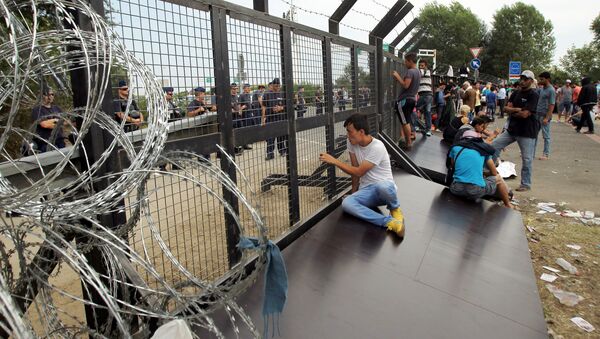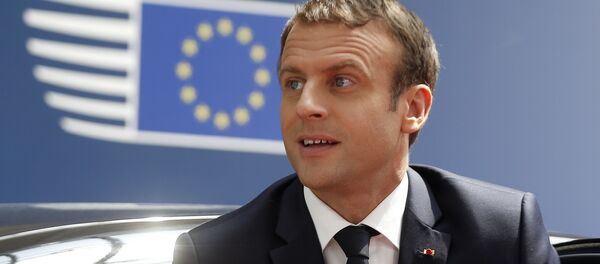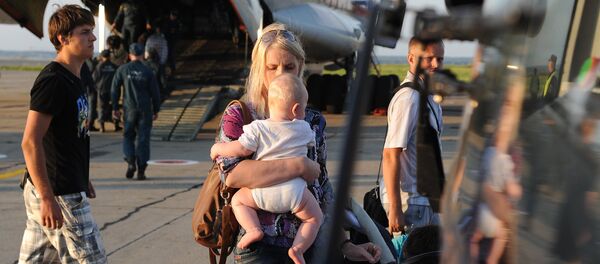In September 2015, the EU Council forced through its plan to impose a quota system to redistribute 160,000 migrants from Greece and Italy across the EU by September 2017.
The plan was passed by the majority of EU interior ministers, but four of the bloc's members voted against the measure: Hungary, Slovakia, Romania and the Czech Republic. Finland abstained from the vote.
Since then, Hungary and Poland have not resettled a single refugee, while the Czech Republic initially accepted 12 people but has refused to take anyone else since August 2016. Between them, the three countries were supposed to take 11,000 refugees under the plan.
Former Slovakian Prime Minister Jan Carnogursky told RIA Novosti that the migrant flow from Syria to Europe is a result of Western European politics in the Middle East, and the Western insistence that Eastern Europe bear its share of the burden is unfair.
"People can't survive in their homeland for economic reasons, so they go to the EU and we are made to take them," Carnogursky said.
Carnogursky, who was Prime Minister of Slovakia from 1991-1992 and served as leader of the Christian Democratic Party (KDH), said that his country was keen to ensure that migrants would be able to assimilate into society.
"Two years ago, our Prime Minister Robert Fico said that Slovakia is only ready to accept Christians from the Middle East, because Slovakia is a Christian society and Christians would be better able to adapt. Today, this is not talked about officially, but I would not rule out a return to this position. This is the important thing: among the Christians from the Middle East in Europe there has not been a single terrorist."
Politicians in Poland have also expressed unwillingness to accept migrants who are Muslims. Earlier this month, Interior Minister Mariusz Blaszczak connected a recent string of terrorist attacks in Western Europe to "the indulgence of multiculturalism and political correctness in Western Europe (which) reaps tragic consequences."
In the Czech Republic, upcoming elections slated for October 2017 have also dented political enthusiasm for taking migrants, political scientist Jan Miklas told Sputnik Czech Republic.
"The Czech Social-Democratic Party, which is currently the main party despite some weakening, knows that if it supports taking refugees it will deepen its fall in support. On the other hand, the ANO party is gaining strength and its leader Andrei Babish won't undermine their possibility for success in the forthcoming parliamentary elections by agreeing to take refugees," Miklas explained.
"The ruling politicians are aware of the popularity of anti-immigrant sentiments and therefore try to play the role of heroes defending 'national interests' against the EU. In fact, they are primarily working for their own interests, and the refugee crisis is a good excuse to divert attention from real problems inside and outside the country and help maintain their position," the analyst said.





